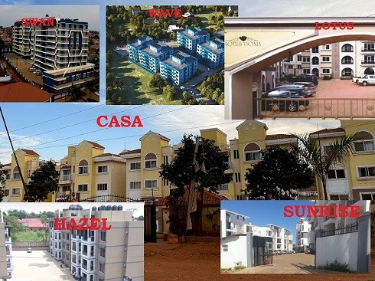The Inspector General of Government (IGG) has exposed a series of poorly constructed and poorly maintained condominium apartments in Kampala, raising concerns about the safety and well-being of unsuspecting buyers.
The findings have prompted fears that the occupants of these properties could face serious harm or even death due to the substandard conditions.
The IGG’s investigation followed numerous petitions from both local residents and Ugandans living abroad, who complained of being deceived into purchasing condominiums from developers, primarily foreign investors.
These buyers, many of whom were from the diaspora, were disappointed to discover that the properties they had invested in were far from what they had been promised. The buildings were found to be in a deplorable state, failing to meet basic safety standards and offering little value for money.
This revelation is particularly concerning for Ugandans in the diaspora, who have long been targeted by unscrupulous developers. These individuals, seeking to invest in their home country, have often found themselves betrayed—first by their relatives, whom they had trusted to build homes for them, and now by developers who have taken advantage of their absence. Many diaspora investors have since shifted their focus away from Uganda, opting instead to invest abroad due to these repeated disappointments.
In response to the mounting complaints, the IGG convened a meeting in October 2023, bringing together both state and non-state actors, including buyers, accused investors, and regulators within the building industry.
Despite the hopes that government ministries, departments, and agencies would take action to address the grievances of Ugandan homebuyers, the IGG noted that little had been done to rectify the situation.
During a recent meeting at the IGG headquarters in Kampala, IGG Betty Kamya expressed her frustration with the lack of response from government officials responsible for regulating the real estate sector.
“Ugandan home buyers have been handed a very raw deal by foreign investors, despite the numerous regulatory agencies of the government who are supposed to protect them,” Kamya said.
She further criticized these agencies for failing in their duties, despite the substantial resources at their disposal, including government salaries, top-of-the-line vehicles, and generous allowances.
Kamya called on these officials to take responsibility for the public’s safety and well-being. “I want to know what you have done to alleviate the pain of Ugandans who bought these unsafe properties under your watch. If you are sleeping on the job, there will be consequences,” she warned.
The IGG’s report, now in the hands of the public, detailed investigations into at least seven condominium properties across Kampala, including Swan Residence on Kireka-Namugongo Road, Hazel in Namugongo, Casa Marcella in Naalya, Sunrise in Naalya, Leo Zodiac in Najjera, Lotus Vicinia in Najjera, and Waves in Kungu.
The inspections revealed numerous issues, including deep cracks in exterior walls, poor drainage systems, faulty gates, constant pipe leakages, leaking roofs, peeling walls, broken doors, and inadequate stormwater management.
One of the most concerning cases was Swan Residence, developed by Universal Multi-Purpose on Kireka-Namugongo Road.
The property consists of two blocks, each containing 50 units. Homeowners began occupying the premises in 2022, but investigations revealed that the architectural drawings were only approved in May 2020, and there was no record of occupation permits being issued. The inspection uncovered a series of structural issues, raising serious concerns about the safety of the occupants.
These findings have sparked a broader discussion about the accountability of real estate developers and the role of government regulators in ensuring the safety and quality of housing in Uganda.
As the IGG continues to hold officials accountable, there is hope that these revelations will lead to stricter oversight and better protection for homebuyers in the future.






